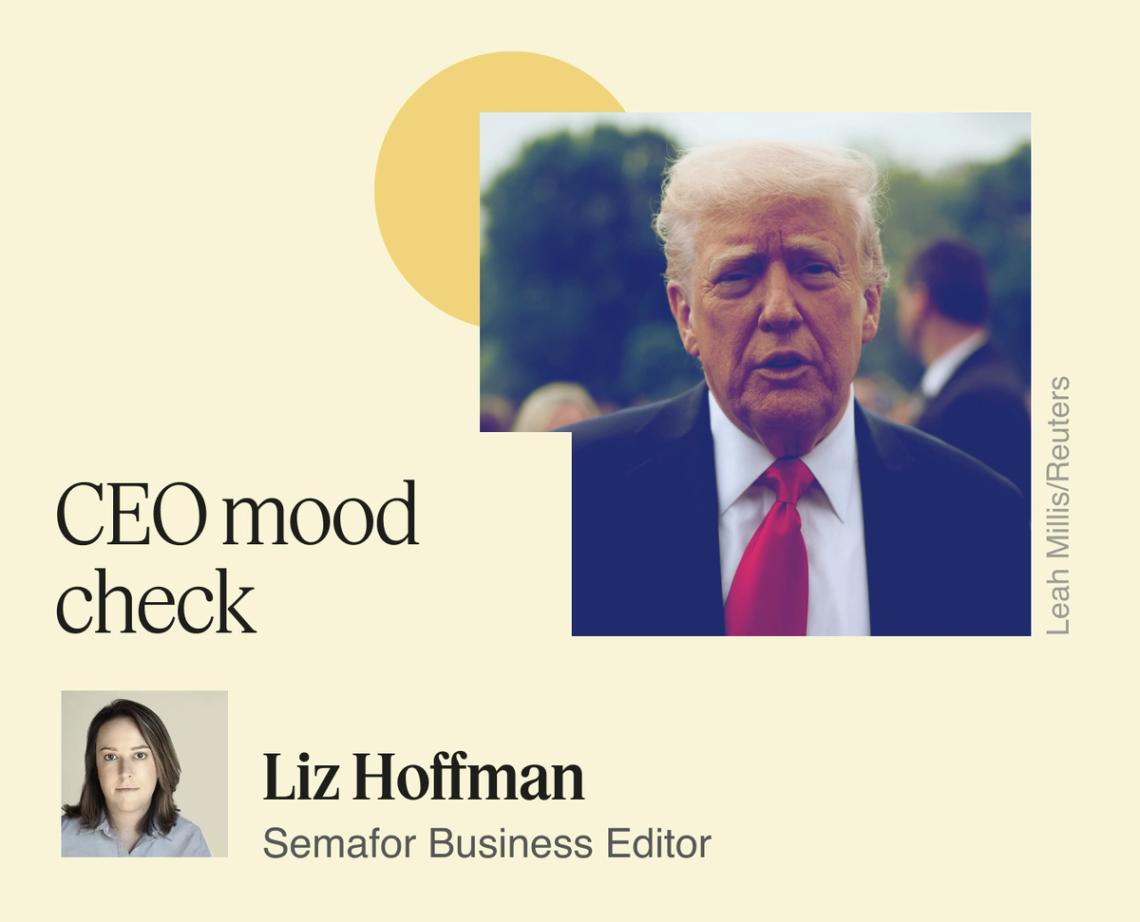 2025’s Davos consensus continued its unbroken tradition of being wrong. Just three months ago, CEOs were eager — competitively so, it seemed — to express their enthusiasm for the new administration. “Corporate America is unshackled,” I wrote from the ground, “and the mics are everywhere.” You can now add “trade war” to the list of things the Swiss Alps confab missed, behind the 2008 financial crisis, Brexit, the pandemic, and the near-total disintegration of the economic globalism that is at the heart of Davos. The pessimism and fear in the capital class right now is unmissable, and won’t be swiftly reversed. I mention all this because a) reaping, sowing, etc. and b) I’m on my way to Washington, where our World Economy Summit could not be better-timed. We’ll have more than 200 key global leaders and CEOs on stage including GM’s Mary Barra, Netflix’s Ted Sarandos, and Citadel’s Ken Griffin. Query whether they’ll be as candid in their concern as they were in their optimism a few months ago, but whatever consensus emerges, I hope it holds up better. See below for some of the conversations I’m most looking forward to, and tune in. The conference starts Wednesday. Livestream here and agenda here. |